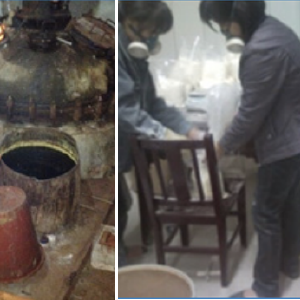What Does an Addicted Person Look Like?

There are probably a lot of people who think they can spot an addicted person. A heroin addict will be filthy, they’d say, with matted hair and ripped clothes. A marijuana addict will have dreadlocks and wear beads. A cocaine addict will dress flashy and drive a fancy car and throw money around. Actually, a person looking for an addicted person by using these signs will fail nearly all the time.
All Kinds of People Wind up on a Path to Addiction
The path to addiction these days very often starts medically. Too many painkillers prescribed for a short-lived injury. Medical marijuana handed out freely to anyone with cash. A patient recovering from an injury or surgery trusts the doctor and accepts the 30-day supply of pills for pain that will last a few days. A young, reasonably healthy man or woman believes the marijuana lobbyists who say that there’s nothing harmful or addictive about marijuana. So the patient quickly becomes hooked on pills and the healthy young man learns to end each day with a joint.
For some other people, their path to addiction started at a party where their friends were consuming drugs like Ecstasy, pills, synthetic drugs or alcohol. It seemed to be the thing to do so they joined in rather than look like someone who didn’t know how to have a good time.
Once addiction gets its hooks into people, it could be years before they show obvious signs of addiction. So, in the interim, an addicted person could be your child’s school bus driver or Sunday school teacher. It could be a college student, your accountant or the nurse in your doctor’s office or the tech support person at your local computer store.
Your insurance agent could be a hidden alcoholic and your state senator could be addicted to pain medication he got a year ago for back surgery. You can’t always tell by looking. According to recent surveys, one in twelve Americans meets the definition of drug abuse or dependence. That means they are harming themselves with drugs or alcohol and feel they need that substance to get through each day.
Non-Discriminatory

Addiction does not discriminate. It will claim a junior in high school or a grandmother, an auto mechanic or taxi driver. Once some years go by, these people could bear a resemblance to this typical image of an addicted person. We could find a woman sitting outside a convenience store who has now lost everything of value and her health is precarious. She wears an expression of pain and is thin and wasted-looking. She’s homeless now and camps out wherever she can so she and her clothes have not been clean for a while. But not so long ago, she owned a successful hair salon. Then she “fell in love” with someone who brought his crack cocaine habit home. She tried to save him and lost everything in the process. She went to jail a couple of times and lost every bit of self-esteem she had because all this behavior just wasn’t her. Why couldn’t she get her life back?
Even this person can benefit from rehabilitation. It is possible to come back even from a desperate situation. If you care for someone who is addicted, contact us. We can help even someone who has lost the ability to cope with life. For fifty years, Narconon has been putting these individuals back in control of their lives and returning them to productivity. Call us to learn how we can help you or someone you love.


